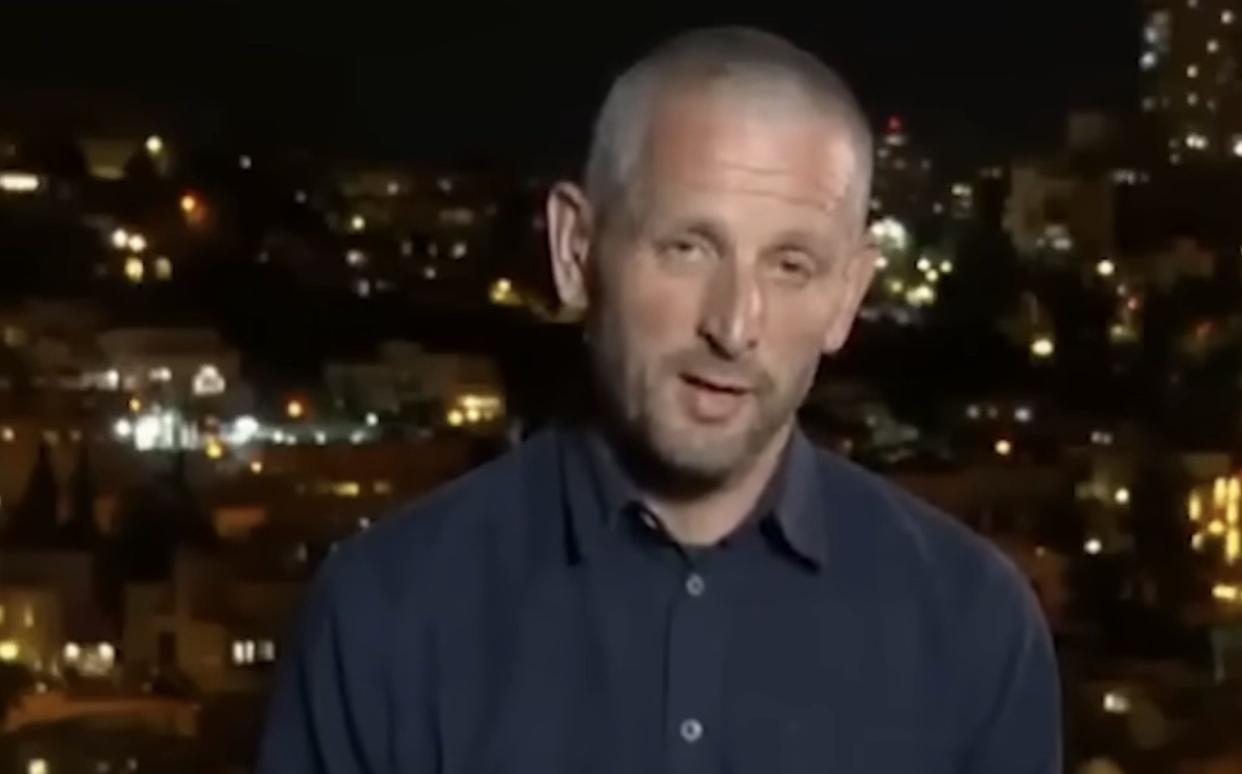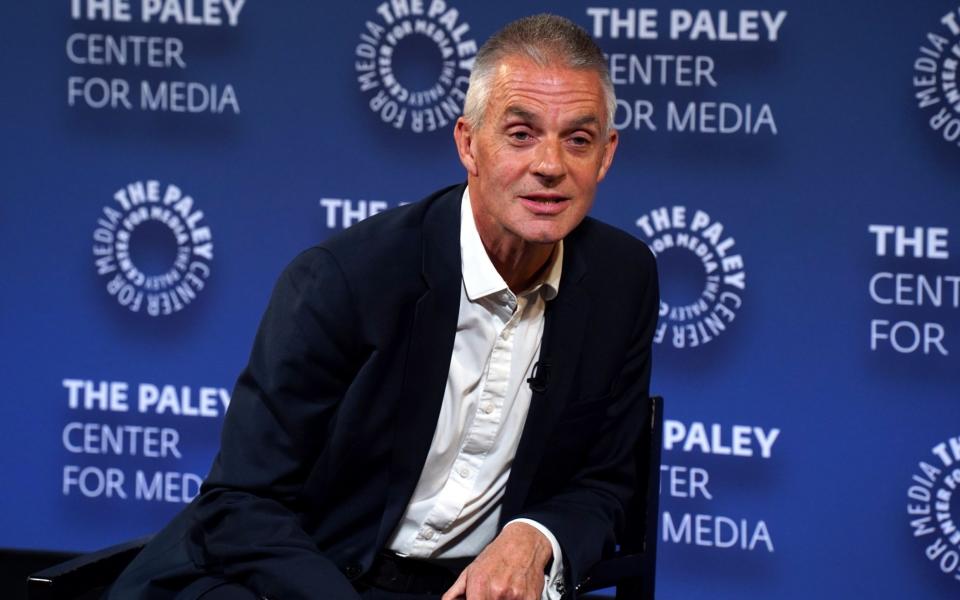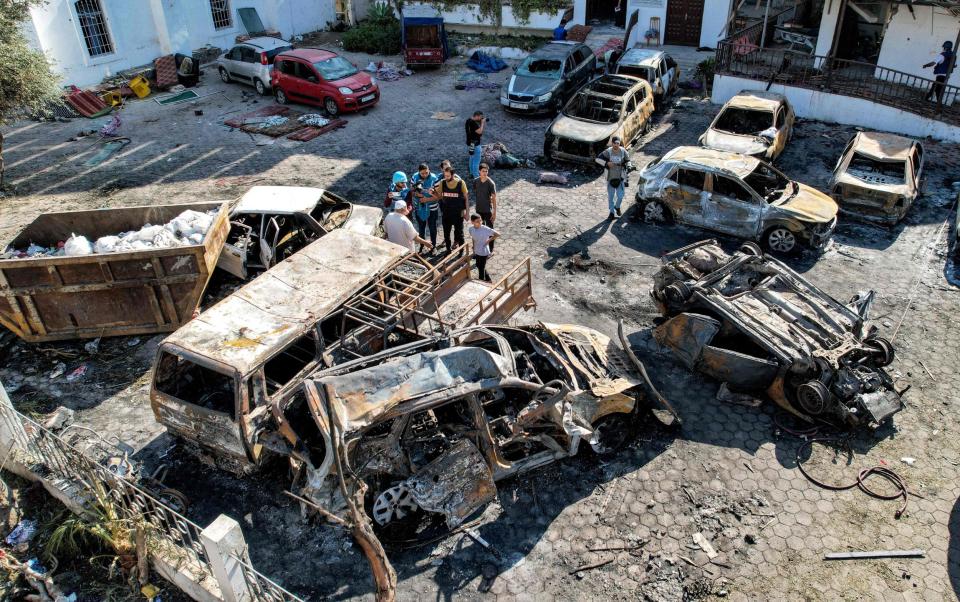BBC rejects complaints about reporting of Israel-Hamas war

- Oops!Something went wrong.Please try again later.
The BBC has not upheld a number of complaints raised about its reporting of the Israel-Hamas war following an investigation.
Concerns about a report on Oct 17 in relation to the blast at Al-Ahli hospital as well as other news bulletins were raised by the law firm Mishcon de Reya on behalf of the Board of Deputies of British Jews and the Campaign Against Antisemitism (CAA).
Tim Davie, the director-general of the BBC, referred the complaints to the corporation’s executive complaints unit (ECU), which considered them in light of their “editorial standards of accuracy and impartiality”.
It comes as BBC employees have reportedly been banned from attending a march against anti-Semitism on Sunday.
Both organisations complained that the BBC news show The Context “wrongly attributed” the air strike at Al-Ahli hospital to the Israeli military, which Israel has suggested was caused by a rocket misfired by Palestinian militants.

During the show, Jon Donnison, a BBC correspondent reporting from Jerusalem, said: “Now the Israeli Defense Forces, the Israeli military, have been contacted for comment and they have said that they are investigating.
“But, you know, it’s hard to see what else this could be, really, given the size of the explosion, other than an Israeli airstrike or several air strikes, because, you know, when we’ve seen rockets being fired out of Gaza, we never see explosions of that scale.”
The ECU stated that the complaint has been “resolved” because it judged that Mr Donnison had made it clear to viewers that the Israeli military had not made any “substantive comment”, and although he had stated there was a “strong probability of Israeli involvement”, it deemed that he had not offered a “definitive judgment”.
However, it accepted that it was “not consistent with the BBC’s standards of due accuracy to offer any view about responsibility for the incident at a point where so little reliable information was available”.
The complaints unit noted that BBC News had posted a statement on their corrections and clarifications page stating that Mr Donnison was “wrong to speculate” on the causes of the blast and an apology was added to the statement when the latest ruling was published.
The CAA also complained about a tweet, push notification and post in relation to the reporting of the events of Oct 17.
The ECU did not uphold the complaints about inaccuracy in the report as it referred to BBC Verify’s coverage and stated that “the BBC cannot yet establish as fact who was responsible for the blast”.

Another complaint that was not upheld questioned the BBC’s impartiality in relation to the broadcaster not using the term “terrorist” in relation to Hamas.
The Board of Deputies argued that use of “terms as ‘bomber’, ‘attacker’, ‘gunman’, ‘kidnapper’, ‘insurgent’ and ‘militant’ fell short” because they did not “convey the full horror” of Hamas’s actions on Oct 7.
The ECU accepted that none of these terms on their own conveyed the full horror of the actions but added that there was “room for doubt” that even the word “terrorist” did this.
It added that it was the reporting of Hamas’s actions, rather than the terminology, “that was the test of whether justice has been done to the events”.
A BBC spokesperson said: “The BBC is clear that anti-Semitism is abhorrent.
“We have established guidance around marches, which explains that different considerations apply depending on what you do for the BBC.
“Corporately, we have not issued any staff communication on any specific march this weekend, but this does not mean discussions which consider the guidance have not taken place between colleagues.”

